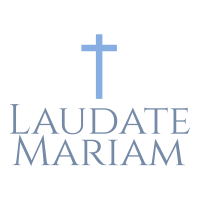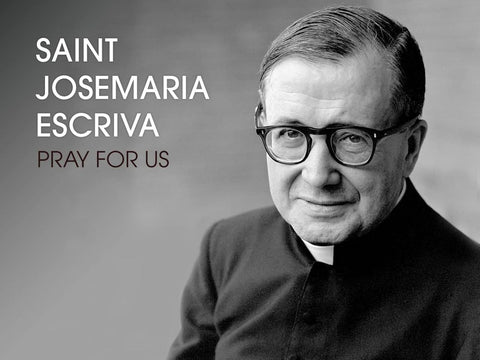In the grand panorama of Catholic history, St. Josemaria Escriva emerges as a compelling figure whose life and teachings continue to resonate with people across the world. From his humble beginnings in Barbastro, Spain, to becoming the founder of Opus Dei, his journey serves as an inspiring testament to the transformative power of faith and perseverance. This post delves into the legacy of St. Josemaria, spotlighting the indelible impact he exerted on the world through the establishment of Opus Dei.
Humble Beginnings
St. Josemaria Escriva was born on January 9, 1902, in Barbastro, Spain, as the second of six children. The Escriva family, though often plagued by financial difficulties and the loss of three children in their infancy, remained devout in their faith. This deep-rooted spirituality would profoundly shape young Josemaria's life and, later, his ministry.
His calling to priesthood led him to Zaragoza, where he pursued his ecclesiastical studies and was eventually ordained in 1925. His early years in priesthood were spent in diverse roles, serving in various parishes and chaplaincies around Zaragoza.
The Birth of Opus Dei
The vision for Opus Dei, which translates as "Work of God," came to Josemaria during a spiritual retreat on October 2, 1928. He envisioned a way for people, irrespective of their occupation or station in life, to strive for holiness in their everyday lives. This innovative concept marked a shift from the then-prevailing notion that sanctity was primarily the domain of the clergy and religious orders.
Despite the challenges and skepticism he faced, St. Josemaria remained steadfast and formally founded Opus Dei in 1930. His charisma, coupled with the universal appeal of his message, drew an increasing number of followers. By the time of his death in 1975, Opus Dei had spread its roots across six continents and had deeply impacted the Catholic community worldwide.
A Legacy of Holiness in Everyday Life
The cornerstone of St. Josemaria's legacy is the doctrine of the "universal call to holiness." He passionately espoused the belief that everyone—regardless of their profession, marital status, or social standing—has the capacity to encounter God in their daily life. In his book "The Way," he states, "It is in the simplicity of your ordinary work, in the monotonous details of each day, that you have to find the secret, which is hidden from so many, of something great and new: Love."
St. Josemaria's teachings struck a chord with those who sought a more relatable path to faith—one that didn't necessitate renouncing worldly duties. His principles inspired millions to perceive their everyday tasks, be it parenting, studying, working, or volunteering, as opportunities for spiritual growth.
Continuing Impact
The ripple effects of St. Josemaria Escriva's teachings are palpable in today's world. With thousands of members globally, Opus Dei continues to thrive. His writings, such as "The Way," "Furrow," and "The Forge," continue to inspire individuals worldwide. In "Furrow," he advises, "Don't let your life be barren. Be useful. Make yourself felt. Shine forth with the torch of your faith and your love."
His feast day, celebrated on June 26th, is a testament to his journey from a small Spanish town to the founder of a spiritual movement that spans the globe.
His teachings significantly influenced modern Catholic thought, particularly the Second Vatican Council's emphasis on the role of the laity and the universal call to holiness.
The life and teachings of St. Josemaria Escriva embody faith, perseverance, and love for God and humanity. His legacy continues to illuminate the path to sanctity in ordinary life, echoing his words in "The Forge," "We find the invisible God in the most visible and material things." Through Opus Dei, he showed the world that everyone has the potential for holiness—an enduring message that remains as relevant and revolutionary today as it was in his time.

